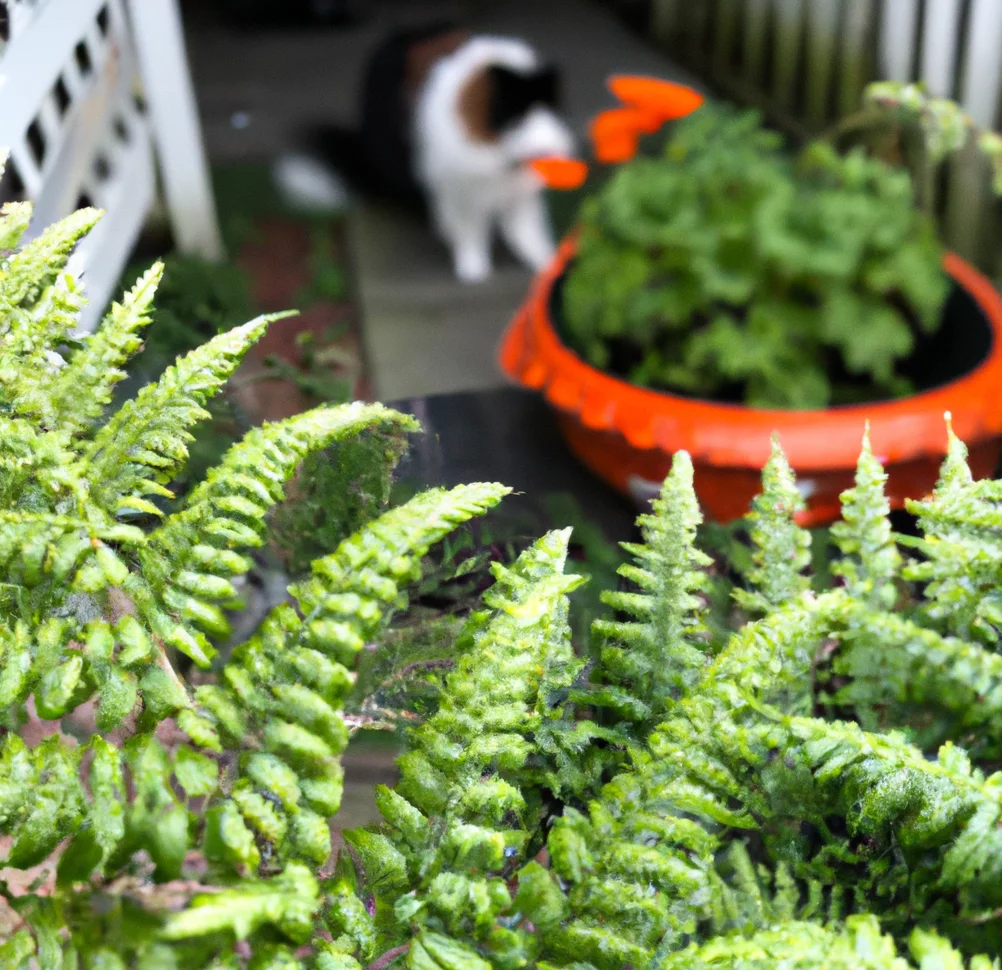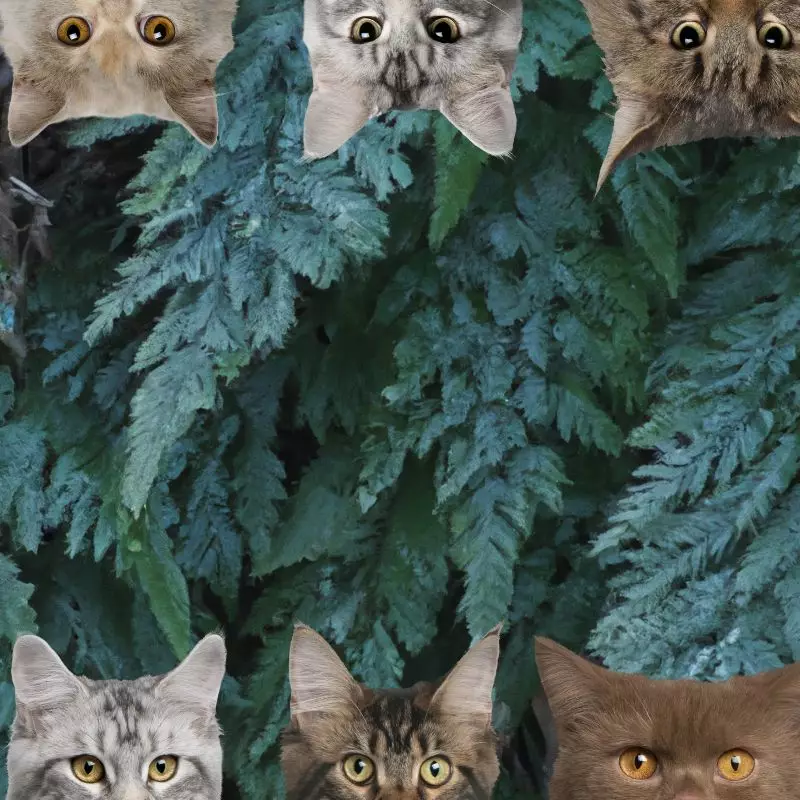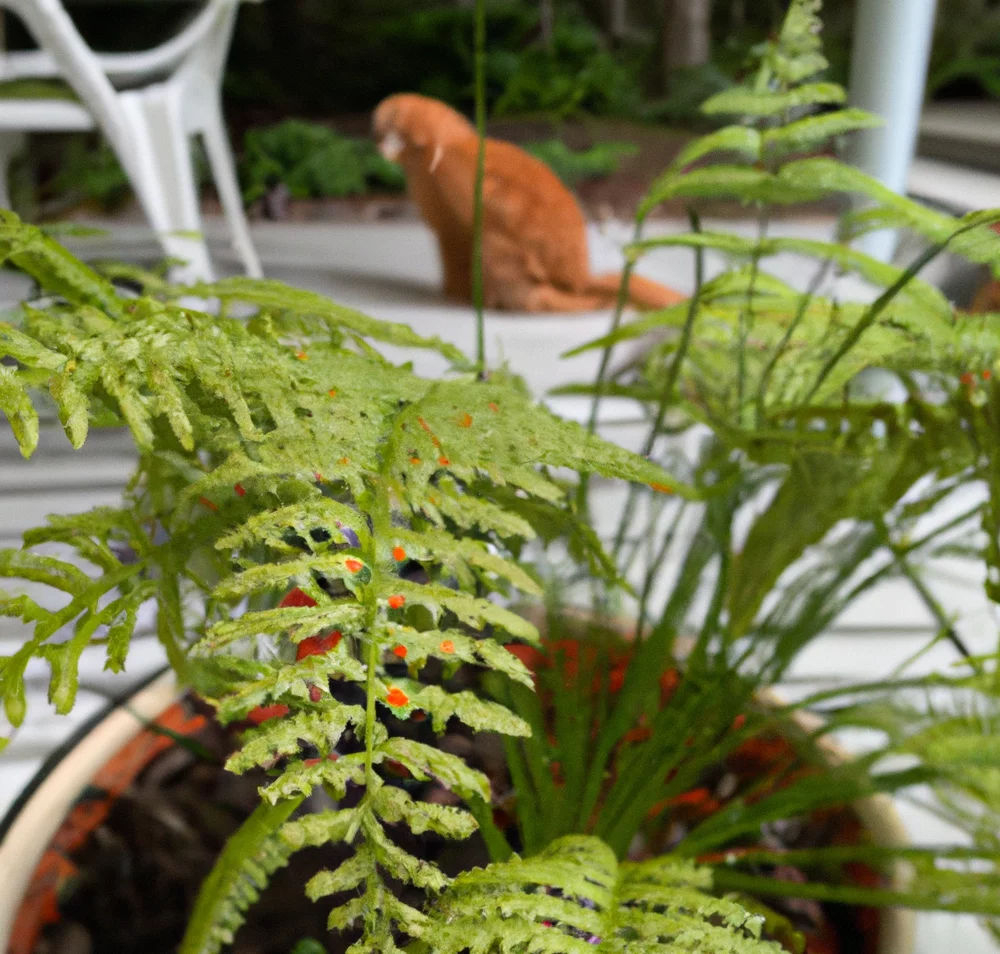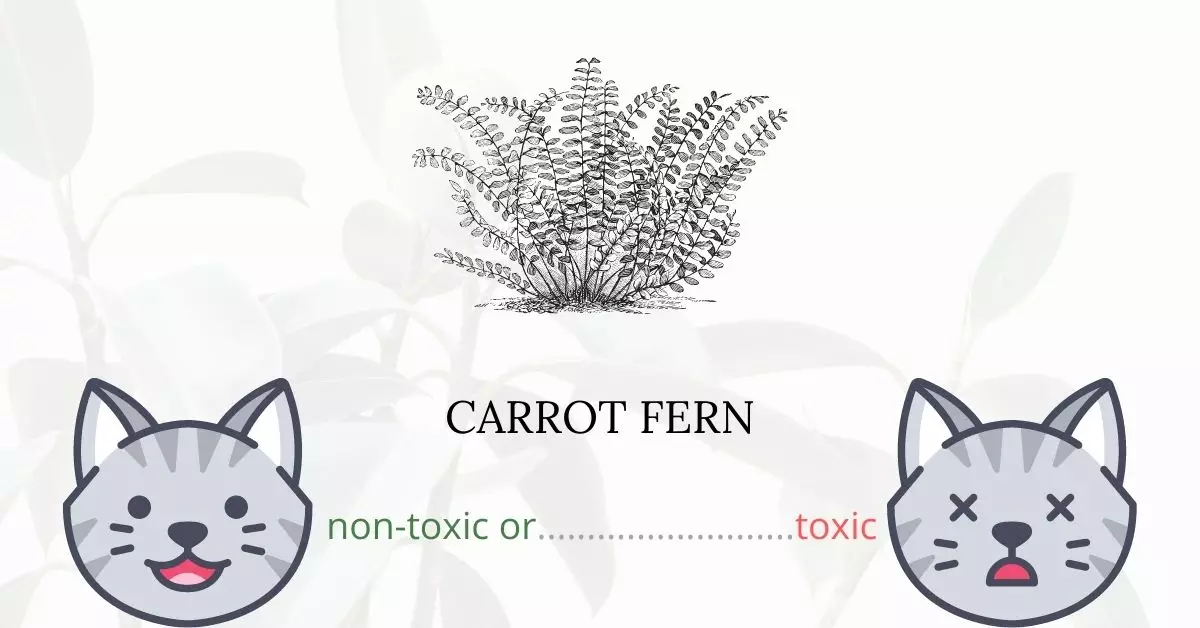Carrot Ferns pose no toxicity risk to cats, as per the reputable American Society for the Prevention of Cruelty to Animals (ASPCA). This provides reassurance to pet owners as it implies that cats are generally safe around most ferns, and consumption of Carrot Ferns typically doesn’t pose any substantial threat to their health.
This article has been meticulously compiled and reviewed in collaboration with a team of seasoned Doctors of Veterinary Medicine (DVMs) who, through their extensive knowledge and experience, contribute to the depth and accuracy of our content, ensuring it reflects the most current and reliable information on the potential risks associated with various plants, with Carrot Ferns being the focus in this instance. To further substantiate the credibility of the information provided, comprehensive research has been conducted, utilizing high-authority resources such as ASPCA and PetMD to corroborate findings on each plant discussed.
Can Cats Eat Carrot Fern?

Carrot ferns are safe for cats to eat or touch. You don’t have to rush your cat to the doctor right away; simply keep a watch on any symptoms that appear. Carrot ferns are safe for cats, however, big amounts should be avoided. If your cat consumes too many of these plants, it may get intestinal issues. This will be unpleasant, but in healthy cats, it is unlikely to cause long-term problems or death.
What is Carrot Fern?

Carrot fern (Onychium japonicum) is also known for its other names like Claw fern, Sichuan lace, Onychium japonicum ‘Sichuan Lace’, and Japanese claw fern. It’s a deciduous, perennial fern with exquisite fluffy fronds that resemble carrot leaves. It’s native to Asia and thrives in the deep shade of woodland places. Carrot fern is a clump-forming fern that grows up to 45cm tall with wiry, black stems bearing upright to arching, feathery-looking fronds with up to three times divided leaflets.
Keeping Cats Away From Carrot Fern

Even though carrot ferns are not toxic to cats, the ASPCA recommends that cat owners keep their felines away from any houseplants, regardless of toxicity. Cats eat houseplants for a variety of reasons, including boredom or being attracted to the fluttering leaves.
You don’t need to remove all ferns from your house or yard. Instead, be cautious about where you place your ferns. Hanging baskets are a great way to keep your ferns safe from your cat while also looking lovely in your home. Ferns can also be used to decorate high shelves.
Plants to Avoid For Your Cats
If you are a cat owner and unsure if the plants growing in your yard are harmful to your cats, check out this list of toxic plants for cats. You can also check our list of non-toxic plants for cats.





